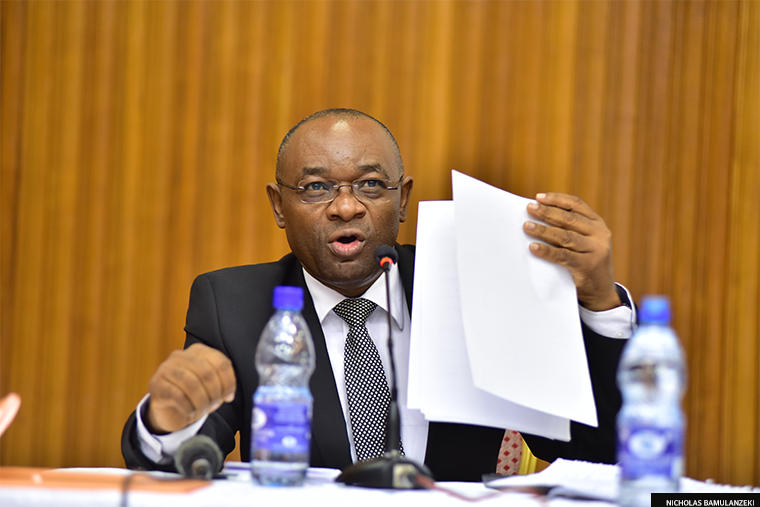The Minister of Local Government Raphael Magyezi has been tasked to present before parliament, a statement about concerns on the implementation of the Parish Development Model (PDM).
The Parish Development Model (PDM) was launched during the financial year 2020/2021 as a delivery mechanism for transitioning 39 per cent of households from a subsistence economy to a money economy and as a wealth creation programme at the lowest economic planning unit, the parish.
The model is premised on seven pillars including Agriculture Value Chain Development, Infrastructure and Economic Services, Financial Inclusion, Social Services, Community Mobilization and Mind-set Change, Parish-Based Management Information System and Governance and Administration.
But Members of Parliament have observed limitations in financial inclusion; one of the pillars of the programme. For instance, Laura Kanushu, one of the representatives of Persons with Disabilities said that the 10 per cent funding designated for persons with disability at the parish level has not been effected and many PWDs have been stopped from setting up their own SACCOs.
Similarly, Northern Uganda Youth MP Boniface Okot said that many youths across the country were told that they could not form their SACCOs and were tasked to join already existing ones. He added that youth leaders are not included in the leadership of the SACCOs as required by the PDM guidelines.
“The guidelines state that the Parish Youth Council Chairperson should be part of the committee. But we have noted that the youth leaders in some areas have been relegated,” Okot said and also appealed for the translation of PDM guidelines into local languages to ease information dissemination.
Meanwhile, Toroma County MP Joseph Koluo said that the intended beneficiaries in SACCOs are unable to benefit from the funds that have been disbursed. He explained that although documents indicate that there is money in the selected bank accounts, groups find totally nothing whenever try to withdraw the money.
Rukiga Woman MP Caroline Kamusiime also called for funding to facilitate Parish Chiefs to execute their mandate of monitoring the progress of the programme. She said that parish chiefs in Rukiga were not given funds to carry out sensitization yet the people have not yet appreciated the model.
Butambala Woman MP Aisha Kabanda said that the newly created parishes have not benefited from funding under the new programme citing a disconnect between the Electoral Commission and Local Government. According to Kabanda, while the new parishes became electoral areas, the Ministries of Finance and Local Government did not consider them while allocating money.
Based on these issues, the Deputy Speaker of Parliament Thomas Tayebwa directed the Minister to present a report on the different observations and recommendations made by legislators on Thursday as the house continues to debate the different regional oversight reports on the new programme.
“I need you to get all the reports and comb through the observations and recommendations. Give us a response on the cross-cutting issues and highlight those that are unique to particular areas,” the Deputy Speaker directed.
In his recent report, Auditor General John Muwanga highlighted several challenges of the Parish Development Model (PDM) and they range from incomplete baseline data, implementing entities not provided with resources to undertake the start-up activities, diversion of 17.5 billion, 594.7 million Shillings in five Local Governments among others.
Muwanga recommended that the Ministry of Local Government and the Ministry of Finance should ensure all disbursed PDM funds are fully accounted for and that accounting officers should revoke appointment letters of the irregularly appointed parish chiefs and recover the paid funds.
The Auditor General, however, noted that the government has registered some achievements regarding the PDM implementation and these include constituting a National Policy Committee to give strategic direction for the programme, setting up a functional PDM Secretariat, publicizing the programme nationwide and issuing implementation guidelines.
![]()




























